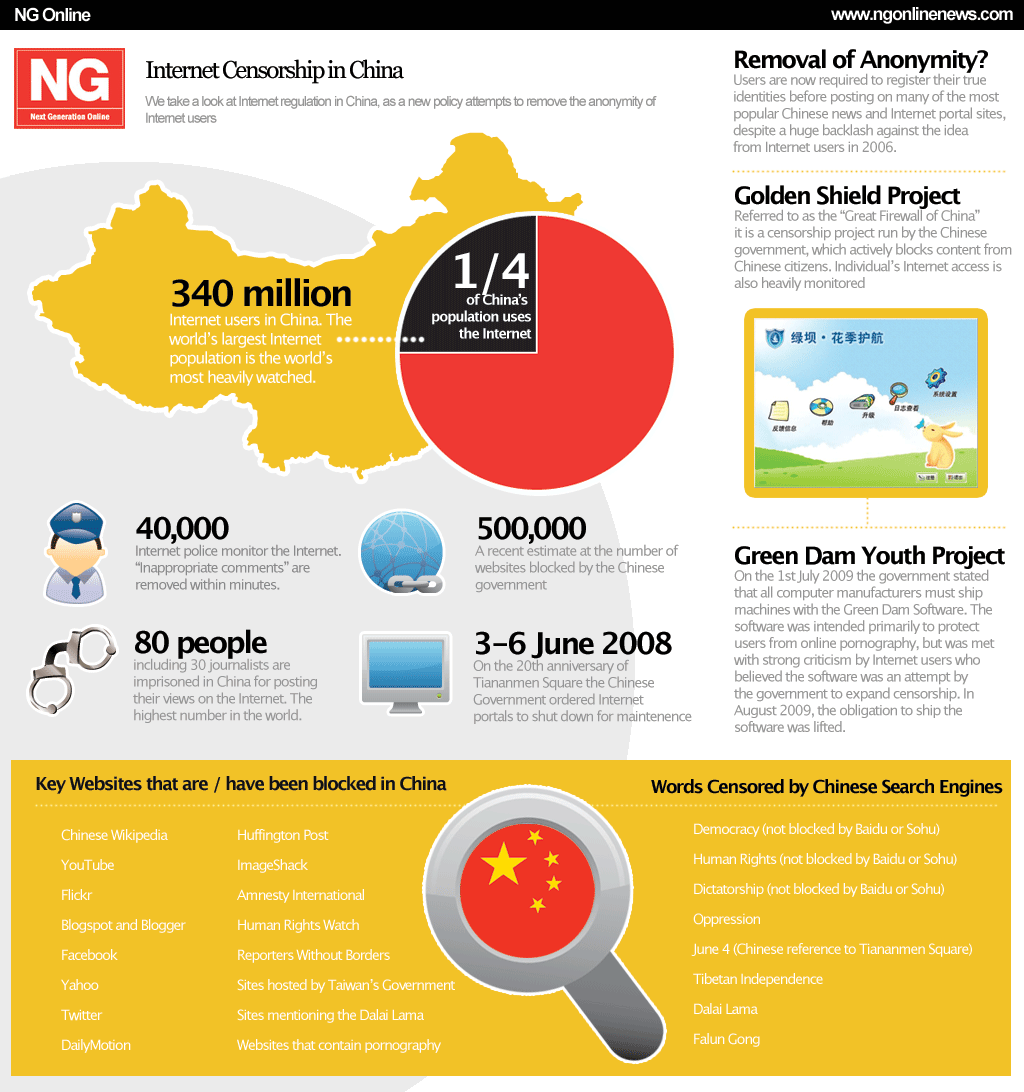Microsoft's Bing blocked in China
January 25, 2019 | Expert Insights

Microsoft’s search engine, Bing is the latest American technology service to be censored in China. It has been ordered by the government of China to block this search engine despite Microsoft’s effort to work in accordance with government policies.
Background
Censorship in China is implemented by the PRC's ruling party, the Communist Party of China (CPC). The Chinese government asserts that it has the legal right to control the internet's content within their territory and that their censorship rules do not infringe on the citizen's right to free speech. The government maintains control over all media capable of reaching a wider audience. The PRC (People's Republic of China) has historically sought to use censorship to 'protect the country's culture,' and is seen as the cultural authority of China...
Internet censorship in China is among the most extensive censorship in the world due to a wide variety of legal and administrative regulations. More than sixty internet restrictions have been created by the Government of China, which have been implemented by provincial branches of state-owned ISPs, companies, and organizations. According to Amnesty International, around 30,000–50,000 internet police have been employed to enforce Chinese internet laws.
Chinese officials have access to uncensored information via an internal document system. Chinese citizens frequently use many techniques to circumvent Internet censorship in order to discuss social and political current events on online platforms and gain access to web pages blocked by the Great Firewall of China.

Analysis
Microsoft Corp.’s Bing search engine has been red flagged in China, following a government order. China Unicom, one of China's major state-owned telecommunication companies, confirmed that the government had ordered a block on Bing.
Accessing the cn.bing.com website within China resulted in the message: This site can't be reached though users can still access Bing’s international site using a virtual private network (VPN).
The internet is heavily censored in China as a form of information control. Many non-Chinese websites and social media services such as Twitter and Facebook are blocked. Google shut down its search engine in China in 2010, and Bing had continued to operate in the country along with Microsoft-owned Skype.
"We've confirmed that Bing is currently inaccessible in China and are engaged to determine next steps," a Microsoft spokesman said. Microsoft (MSFT), which recently overtook Apple (AAPL) as the world's most valuable company, has faced setbacks in China before. The company's internet video and phone call platform Skype was pulled from Apple and third-party Android app stores in China in November 2017.
Microsoft is part of the Internet Society of China, a government-linked body whose members pledge to refrain "from establishing links to websites that contain harmful information" or share any content which could "jeopardize state security and disrupt social stability, contravene laws and regulations and spread superstition and obscenity."
Chinese censors crack down on content and conversations about subjects deemed sensitive by Beijing, including the Tiananmen Square massacre, Tibet and criticism of President Xi Jinping. They also punish sites that fail to weed out material like pornography and crude content that the ruling Communist Party considers vulgar or otherwise harmful to society. China has tightened policing of the internet in recent years, shuttering 26,000 "illegal" websites in 2018 that includes cracking down on foreign internet products & blocks on Instagram and WhatsApp...
Chinese tech firm Baidu is the dominant player, accounting for 70% of the market last year, according to research firm StatCounter. Alibaba-backed (BABA) Shenma is the second biggest with about 16%...
Assessment
Our assessment is that blocking Bing would isolate China’s internet from the rest of the world. Although not widely used in China, Bing was the only alternative to the local search engine Baidu. We feel that the Chinese are self-insulating their economy from the dominance of international corporations. It can be noted that quality information will be inaccessible to the world’s largest online population and US-based search engines will feel the market loss.








Comments